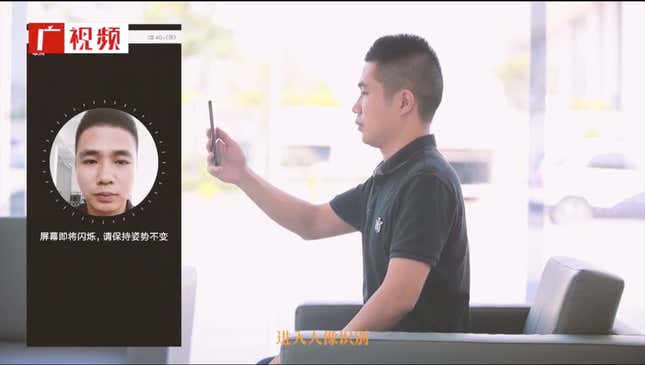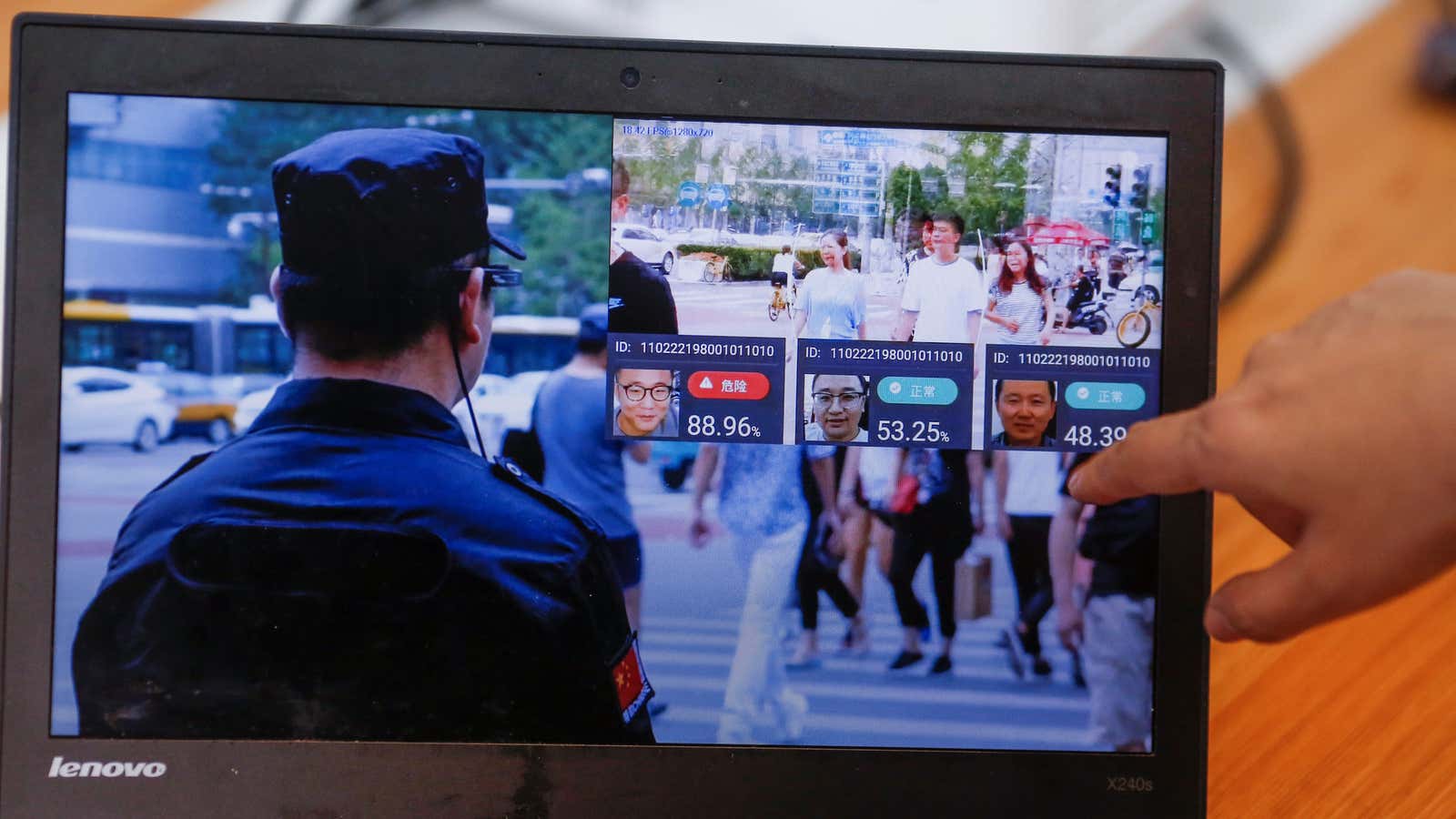China’s obsession with facial-recognition has already seen the country use the technology for everything from catching jaywalkers to registering a mobile number. Now a new police app is inviting people to request face scans from their personal contacts—among the first applications of peer-to-peer use of the technology
The police bureau in the southern Chinese city of Guangzhou, near Hong Kong, rolled out an app named Zhen Ni (The Real You), last week (Nov. 27). The program is embedded in China’s digital ID system, a program from the Ministry of Public Security that works on the messaging platform WeChat, and allows enables users to upload details from their national identity cards to use their phones as virtual IDs in order to book hotels or purchase train tickets.
The program is being promoted by the Guangzhou police as their latest effort to weed out online fraud. In its short promotional video, it listed several scenarios in which the program could be used. For example, it showed a woman receiving a request from a colleague to urgently transfer money via WeChat—the kind of unexpected request that might come from a hacked or stolen phone. Using the app she sends her colleague a link that allows them to scan their face and verify their identity before she transfers the money. The police bureau said it could also be used for an added layer of safety during online dating, or when companies recruit employees.
Guangzhou police are also planning to launch the feature on Alipay, the country’s most widely used payments app, owned by Chinese fintech giant Ant Financial, as well as other popular apps.
The program requires users to prove their own identity first by filling in ID details and have their face scanned. They can then verify other WeChat users by sending them the link to the program, which will compare the users’ face with their registered digital IDs, according to a report (link in Chinese) by Guangzhou Daily.

Peer-to-peer uses of facial recognition aren’t common yet, but 2019 has seen at least one other effort to deploy the technology for individual use—to be able to identify venture capitalists in the wild in San Francisco.
China has taken the lead in terms of deploying advanced surveillance technologies, especially facial recognition, with some of its tech champions, such as Megvii and Sensetime, among the major developers of the tech worldwide. Both companies have been put on a trade blacklist by the US, which said the firms were implicated in human rights violations in China’s far western region Xinjiang, where facial-recognition monitoring is widespread. Sensetime has said it was disappointed in the US move, and that the use of its technology is governed by a code of ethics, while Megvii said there were “no grounds” for it to be added to the list.
There are no overarching rules in China that dictate how biometric data, like faces, should be collected and stored, but the country is starting to see some backlash against the use of facial recognition in China, nonetheless. Last month, China saw its first lawsuit filed over the use of the technology by a Chinese law professor in eastern Zhejiang province. The professor sued a local safari park after it began forcing visitors to scan their faces to enter the park. The case has not been heard yet, but the park decided to allow visitors to opt between having their face scanned or using a fingerprint system—which still means the collection of visitors’ biometric data.
